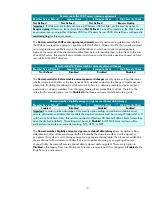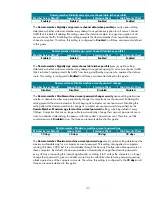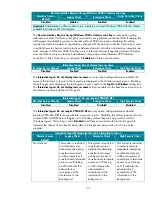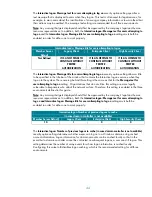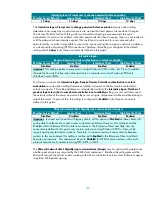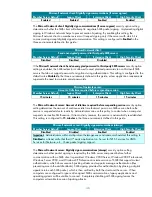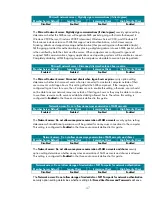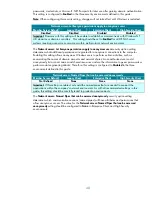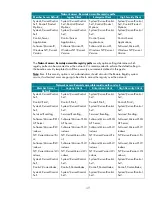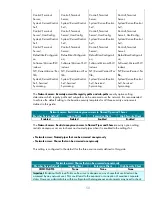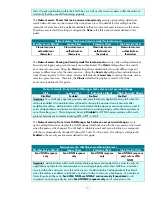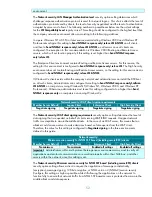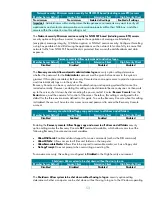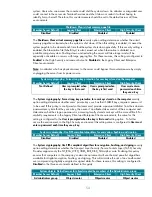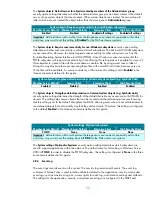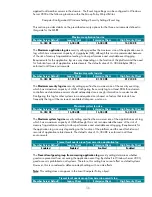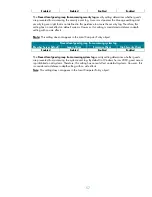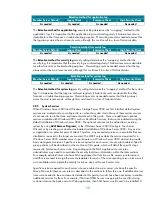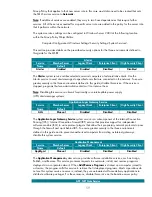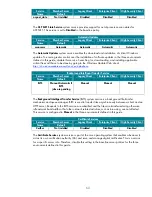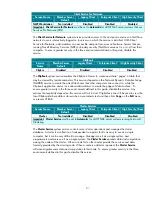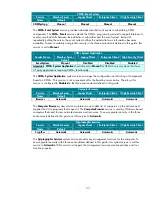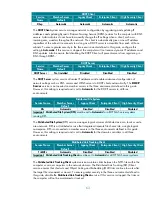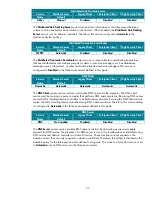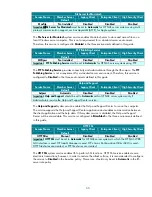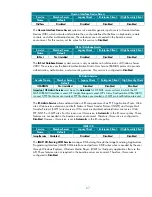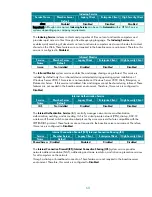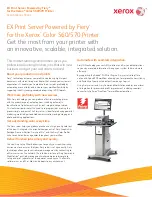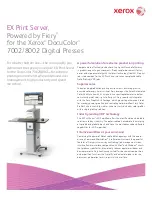
55
The
System objects: Default owner for objects created by members of the Administrators group
security option setting determines whether the Administrators group or an object creator is the default
owner of any system objects that are created. When system objects are created, the ownership will
reflect which account created the object rather than the more generic
Administrators
group.
System objects: Require case insensitivity for non-Windows subsystems
Member Server Default Member Server Default
Enterprise Client
High Security Client
Enabled
Enabled
Enabled all settings
Enabled all settings
Important:
Administrators within multi-protocol heterogeneous environments, especially within Unix
and Linux, may want to set this setting to
Disabled
for the NAS and server systems.
The
System objects: Require case insensitivity for non-Windows subsystems
security option setting
determines whether case insensitivity is enforced for all subsystems. The Microsoft Win32® subsystem
is case insensitive. However, the kernel supports case sensitivity for other subsystems, such as the
Portable Operating System Interface for UNIX (POSIX). Since Windows is case insensitive (but the
POSIX subsystem will support case sensitivity), not enforcing this setting makes it possible for a user of
this subsystem to create a file with the same name as another file by using mixed case to label it.
Doing this may block another user accessing these files with normal Win32 tools, because only one
of the files will be available. To ensure consistency of file names, this setting is set to
Enabled
in the
three environments defined in this guide.
System objects: Strengthen default permissions of internal system objects (e.g. Symbolic Links)
Member Server Default
Legacy Client
Enterprise Client
High Security Client
Enabled Enabled Enabled Enabled
The
System objects: Strengthen default permissions of internal system objects (e.g. Symbolic Links)
security option setting determines the strength of the default discretionary access control list (DACL) for
objects. The setting helps secure objects that can be located and shared among processes. Ensuring
that this setting is set to the default strengthens the DACL, allowing users who are not administrators to
read shared objects but not to modify any that they did not create. Therefore, this setting is configured
to the default
Enabled
in the three environments defined in this guide.
System settings: Optional subsystems
Member Server Default Member Server Default
Enterprise Client
High Security Client
POSIX None None None
Important:
Administrators within multi-protocol heterogeneous environments, especially within Unix
and Linux, may want to set this setting back to
POSIX
for the NAS and server systems.
The
System settings: Optional subsystems
security option setting determines which subsystems are
used to support applications within the network. The default value for this setting in Windows Server
2003 is
POSIX
. In order to disable the POSIX subsystem, this setting is configured to
None
in the three
environments defined in this guide.
2.8.4
Event Log
The event logs records events on the system. The security log records audit events. The event log
container of Group Policy is used to define attributes related to the application, security, and system
event logs, such as maximum log size, access rights for each log, and retention settings and methods.
The settings for the application, security, and system event logs are configured in the MSBP and

